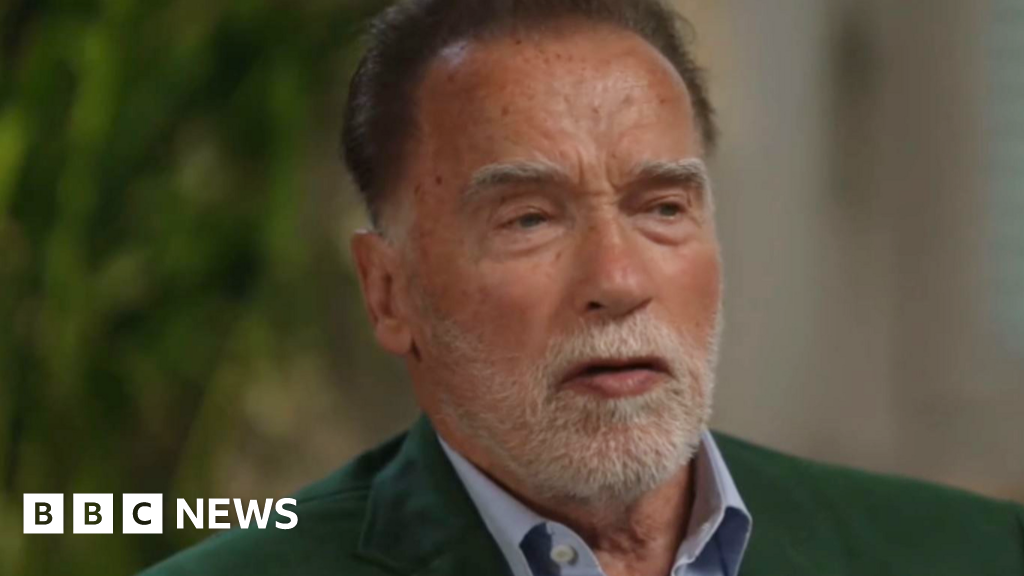After His Trump Blowup, Musk May Be Out. But DOGE Is Just Getting Started.

Elon Musk’s blowup with President Trump may have doomed Washington’s most potent partnership, but the billionaire’s signature cost-cutting project has become deeply embedded in Mr. Trump’s administration and could be there to stay.
At the Department of Energy, for example, a former member of the Department of Government Efficiency is now serving as the chief of staff.
At the Interior Department, DOGE members have been converted into federal employees and embedded into the agency, said a person familiar with the matter, who spoke on condition of anonymity out of fear of retaliation. And at the Environmental Protection Agency, where a spokeswoman said that there are two senior officials associated with the DOGE mission, work continues apace on efforts to dismantle an agency that Mr. Trump has long targeted.
“They are still internally going forward; we don’t really feel as if anything has stopped here,” said Nicole Cantello, a former lawyer for the E.P.A. who represents its union in Chicago.
Whether DOGE keeps its current Musk-inspired form remains an open question. Some DOGE members on Friday expressed concern that the president could choose to retaliate against Mr. Musk by firing people associated with the initiative. Others could choose to leave on their own, following Mr. Musk out the door. And DOGE’s role, even its legality, remain the subject of legal battles amid questions over its attempts to use sensitive government data.
But the approach that DOGE embodied at the outset — deep cuts in spending, personnel and projects — appears to have taken root.
Even with Mr. Musk on the sidelines, DOGE on Friday notched two legal victories. The Supreme Court said that it can have access to sensitive Social Security data and ruled that, for now, the organization does not have to turn over internal records to a government watchdog group as part of a public records lawsuit.
DOGE staffers are becoming “far more institutionalized” within government agencies, said Russell T. Vought, the director of the White House Office of Management and Budget, during an appearance before lawmakers on Wednesday, a day before the relationship between Mr. Musk and Mr. Trump combusted.
Mr. Vought, who has been a quiet, behind-the-scenes driver of the program to shrink government even as Mr. Musk took the spotlight as its celebrity spokesman, said he envisioned DOGE staff working “almost as in-house consultants as a part of the agency’s leadership.”
Harrison Fields, a White House spokesman, said in a statement: “The mission of eliminating waste, fraud, and abuse is a part of the DNA of the federal government and will continue under the direction of the president, his cabinet, and agency heads to enhance government efficiency and prioritize responsible stewardship of taxpayer dollars.”
With DOGE, Mr. Musk sought to orchestrate an extensive overhaul of the government. He promised to eliminate almost a third of the federal budget, $2 trillion, and remake federal agencies into streamlined, tech-oriented entities that operated just like his businesses.
The billionaire adopted the same playbook he used to take over his social media company, then known as Twitter, in 2022. Guided by DOGE, the administration urged staffers to resign from their jobs and laid off even more, canceled leases and demanded workers return to offices, slashed contracts and rooted out programs Mr. Trump and Mr. Musk disfavored, like those focused on diversity and inclusion.
Mr. Musk’s cost-cutting target was later revised, dropping from $2 trillion to $1 trillion, and then down to $150 billion. The group’s own website claimed it saved $180 billion, but its calculations have been inflated by significant errors and guesswork.
The group’s errors have included posting claims that confuse “billion” and “million,” double-counting the same contracts, claiming credit for canceling programs that had been dead for years, and boasting about cuts that had already been reversed.
Courts blocked some of DOGE’S initiatives, some dismissed employees were reinstated when their work proved to be essential, and congressional appropriations kept many funds beyond Mr. Musk’s grasp.
All told, DOGE has tried to gain entry to more than 80 data systems across at least a dozen different agencies, according to New York Times efforts to track the group’s data access. Those data sets include systems that hold personal information about federal workers, detailed financial data about federal procurement and spending, and intimate personal details about the American public.
Last week, Mr. Musk was optimistic about the legacy he was leaving in Washington. DOGE’s mission, he said on X, “will only strengthen over time as it becomes a way of life throughout the government.”
But by Tuesday, Mr. Musk was fretting that his accomplishments were being washed away by the Trump policy bill making its way through Congress. The bill “more than defeats all the cost savings achieved by the @DOGE team at great personal cost and risk,” he wrote on X.

Nonetheless, the DOGE imprint can be seen across the government.
One of DOGE’s most prominent members, the billionaire Airbnb co-founder Joe Gebbia, is planning to remain in government, according to a statement from the Office of Personnel Management. Mr. Gebbia, a close friend of Mr. Musk’s, is working on a project to digitize the federal government’s slow and paper-based retirement process.
Carl Coe, who had previously led DOGE efforts within the Energy Department, was named chief of staff on May 2.
Mr. Coe, who had a background in software development, had been working with 40 different offices with the Energy Department on “process improvement and cost savings,” the agency said. In recent weeks, the Energy Department has begun canceling billions of dollars in Biden-era awards to companies trying to demonstrate technologies that might one day help tackle global warming.
A department spokeswoman declined to comment.
At the E.P.A., Ms. Cantello, the union lawyer, said that she expected no change in the administration’s mission to overhaul the agency. She said it was acting on proposals articulated in Project 2025, the conservative policy blueprint for a Trump presidency, with DOGE employees working hand in hand with Lee Zeldin, the E.P.A. administrator.
“We see these policies continuing on,” she said.
Molly Vaseliou, an agency spokeswoman, said the department was focused on efficiency. “Over the past couple of months,” she said, “we actively listened to employees at all levels to gather ideas on how to increase efficiency and ensure the EPA is as up-to-date and effective as ever.”
At the Interior Department, one former DOGE employee, Tyler Hassen, has assumed the powerful role of acting assistant secretary of policy, management and budget.
In that role, Mr. Hassen oversees human resources, training, grants and contracts, and has the authority to fire people without approval from Doug Burgum, the interior secretary, according to the order under which Mr. Burgum assigned Mr. Hassen the role. As of Friday morning, Mr. Hassen was still in that role, according to a memo from Mr. Burgum.
In recent weeks, Mr. Hassen has worked to cancel agency contracts in ways that directly align with Mr. Trump’s desires, according to two people familiar with the matter, who spoke on the condition of anonymity because they were not authorized to comment on the record. For example, his office has canceled contracts with Harvard University for earthquake relief research, and contracts with the state of Maine, as Mr. Trump has escalated fights with the university and the state.
Also still in place at the Interior Department as of Friday morning was Stephanie Holmes, a former DOGE employee who is now the agency’s current acting chief human capital officer. Ms. Holmes is the founder of BrighterSide, a now-defunct human resources company that focused on pushing back against corporate diversity, equity and inclusion programs.
Neither Mr. Hassen nor Ms. Holmes responded to requests for comment. A spokeswoman for the Interior Department declined to respond to questions about DOGE employees.
At the Social Security Administration — one of the most politically sensitive agencies in government — two members of DOGE, Aram Moghaddassi and Michael Russo, are effectively serving as co-chief information officers, according to two people with knowledge of the arrangement. Mr. Moghaddassi appeared alongside Mr. Musk and other members of DOGE during a Fox News interview.
Still, the continued influence of DOGE could diminish in the coming days if the White House chooses to retaliate against team members.
Some DOGE employees were angry with Mr. Musk’s actions on Thursday, according to a person close to them, and spent the day commiserating with one another in private messages. The concern, the person said, was that Mr. Musk had made them a target for potential firings, especially after he invoked Mr. Trump’s possible ties to Jeffrey Epstein. Some DOGE workers have begun calling the White House to ask if their jobs are secure.
For other members of DOGE, the idea was never to stay in Washington or the federal government for long. They often signed up for short stints, taking leaves from careers at technology companies or law firms that they expected to return to.
Even for DOGE workers who were planning to leave government anyway, the meltdown between Mr. Musk and Mr. Trump could hasten their exit, according to Sahil Lavingia, a former DOGE software engineer at the Department of Veterans Affairs. He said Thursday's events could also deter potential new hires from applying.
“If you join a company and the C.E.O. leaves, you’re going to look for something else,” said Mr. Lavingia, who said he was terminated from DOGE and the V.A. last month after he gave an interview to Fast Company. “If you want to work for Elon, you’re not going to go work for DOGE anymore.”
The veterans agency did not immediately respond to a request for comment.
Mr. Lavingia also said that the departure of Steve Davis, Mr. Musk’s right hand at DOGE, could significantly weaken the effort. “I just don’t know how it functions because everything ran through him,” he said.
DOGE’s fate could also be settled in the courts.
In May, a federal judge allowed a lawsuit to proceed challenging the entire DOGE operation as an unlawful arm of an already powerful executive branch. The lawsuit argues that an entity with as much sway and power as DOGE cannot exercise that authority without leaders vetted and confirmed by the Senate.
In her opinion, Judge Tanya S. Chutkan noted that DOGE has been accused of seizing control over at least 17 federal agencies and has spawned several dozen other lawsuits across the country challenging its authority or trying to reverse its actions.
“Several federal agencies have been dismantled, thousands of federal employees have been terminated or placed on leave, sensitive data has been haphazardly accessed, edited, and disclosed, and federal grants and contracts have been frozen or terminated,” she wrote.
Reporting was contributed by Emily Badger, Andrew Duehren, David A. Fahrenthold, Lisa Friedman, Maggie Haberman, Eric Lipton, Ryan Mac, Eli Murray, Madeleine Ngo, Brad Plumer, Theodore Schleifer and Eileen Sullivan.
What's Your Reaction?
 Like
0
Like
0
 Dislike
0
Dislike
0
 Love
0
Love
0
 Funny
0
Funny
0
 Angry
0
Angry
0
 Sad
0
Sad
0
 Wow
0
Wow
0










































